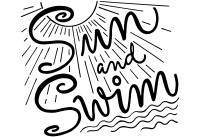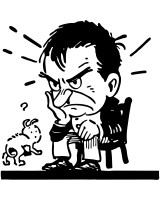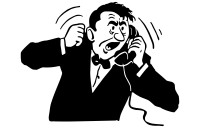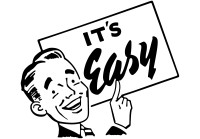Five Characters Readers Hate
Do you love coming home after a vacation? No matter how much you enjoyed yourself?

I’ll confess no matter how good my trips, I miss my dog, my house, my bed and the birds and alligator who regularly visit my backyard. I’m always glad to get back to them.
I’m even glad to get back to work.
Returning this weekend I immediately launched back into writing mode, and today I returned to my proposal in progress. I told you that I wrote several. Mini, short and long. The problem is that my agent wasn’t thrilled with my characters in the mini version. One major character in particular seemed much too dark. Since I hadn’t envisioned her that way, I gave myself the vacation break and re-read the mini-synopsis today. And yes, my agent was right. The woman I want to portray and the one on the page are quite different. Granted this is a short synopsis and I can only pad it with a little detail, but my characters still have to jump off the page and become the people readers will want to know.
So what makes a character sympathetic? Or more fun, what makes one unsympathetic? When I fling a book across the room (figuratively) what makes me do it? Why do I care so little about the people in a novel that I don’t want to know how their lives turn out? I’m not talking about villains or secondary characters we are meant to hate. I’m talking about major characters we are supposed to care about. Characters we want to root for but simply can’t.
Here are five characters readers hate, or at least my take on them. I’m sure I’ve left out one or two you personally can’t stand to read about. Please share. Lists are made to be expanded.
 Bullies. A man or a woman who forces other people to do things their way is hard to love. These are women and men who shut down conversations. They scream or rant or give others the silent treatment. They use size, either mental or physical, against a smaller person. They bribe, manipulate, insist. Rex, in No River Too Wide, is the worst kind of bully, but that story revolves around his wife’s escape from him. In fact we never actually meet Rex. Had his wife been the bully, insisting others help her, ranting about how nobody cared enough, forcing them to assist her, the book would have been a wall banger.
Bullies. A man or a woman who forces other people to do things their way is hard to love. These are women and men who shut down conversations. They scream or rant or give others the silent treatment. They use size, either mental or physical, against a smaller person. They bribe, manipulate, insist. Rex, in No River Too Wide, is the worst kind of bully, but that story revolves around his wife’s escape from him. In fact we never actually meet Rex. Had his wife been the bully, insisting others help her, ranting about how nobody cared enough, forcing them to assist her, the book would have been a wall banger.- Narcissists. These are the characters who truly believe the world revolves around them. Their needs are primary, and they pay no attention to other people’s opinions or feelings. Since we, as readers, want to be part of a real story unfolding in front of us, confronting a narcissist makes us uneasy. We’ve run into these people in real life. We know they don’t care about us. Why should we read about them?
 Sadists. Unlike bullies, who have goals they want accomplished and will do almost anything to reach them, the sadist just enjoys inflicting pain. A truly talented author might be able to make us understand and sympathize with the little boy pulling the wings off a butterfly, but once he reaches adulthood, he or she is going to be almost impossible to love. Most readers won’t get that far no matter what has turned the child into the adult he is.
Sadists. Unlike bullies, who have goals they want accomplished and will do almost anything to reach them, the sadist just enjoys inflicting pain. A truly talented author might be able to make us understand and sympathize with the little boy pulling the wings off a butterfly, but once he reaches adulthood, he or she is going to be almost impossible to love. Most readers won’t get that far no matter what has turned the child into the adult he is.- Whiners. Characters are allowed, for a moment here or there, to feel sorry for themselves. After all, sometimes the novelist has piled so many problems on top of them they’re feeling smothered. A moment here and there of self-pity makes a character feel real. But only a moment. A character who whines about her or his fate throughout the book, who would prefer to complain rather than take action and try to change their situation, is boring. If we run into a whiner at a party, we probably run the other way. Our sympathy dissipates quickly if there seems to be no attempt to cope or change. Same goes in a book. Why bother?
 Do-Gooders. Now I bet some of you are thinking about the Goddesses Anonymous series, right? If ever there was a bunch of do-gooders, there they are. Except that I’m not talking about people who try to live their highest values. I’m talking about people who ferret out weaknesses, who meddle, who advise when it’s not asked for, who search for weaknesses in others and gleefully prove how much better they are because they know how to help. The difference is subtle, but we know it when we see it. They “help” so they will be thought of as helpers (See #2) and to edge their ways into the lives of others where they can become bullies, too. (See #1.)
Do-Gooders. Now I bet some of you are thinking about the Goddesses Anonymous series, right? If ever there was a bunch of do-gooders, there they are. Except that I’m not talking about people who try to live their highest values. I’m talking about people who ferret out weaknesses, who meddle, who advise when it’s not asked for, who search for weaknesses in others and gleefully prove how much better they are because they know how to help. The difference is subtle, but we know it when we see it. They “help” so they will be thought of as helpers (See #2) and to edge their ways into the lives of others where they can become bullies, too. (See #1.)
Five characters readers hate. Am I right? I’m glad to say the character in my synopsis is none of these things. Her problems, thankfully, are subtler. That’s a good start. And now to fix those problems, too.
Agree? Disagree? Do you have additions? We’d love to hear them.
I have realized, in life, that whiners can be narcissists. The chair of a meeting asks for quiet, and they are sure it is aimed at them. A general call is made for volunteers, and they volunteer, then complain about how everyone “expects” them to do the work.
I find myself avoiding those people.
My fat finger hit the button twice! Whoops. I can’t seem to delete the second one.
I deleted the second one, but it was such a good comment, I think twice was not too much anyway.
Interesting, especially how you merged #5 into #s2 and 1, and in that order. Food for thought. Those three together basically take care of characters, or traits that I dislike.
Maybe you know a category for a person who wants/needs something done, presents it in a way that he/she hopes you will think it your idea and go for it; but, heaven help if it turns out not to be to their liking. Speaking from an employee’s view; micro-manager perhaps?
Another one, and I absolutely do not want to offend and this may fall into category #1. A person who honestly believes his/her church affiliation is the only “right” one. That is their right and privilege; but demeaning another’s choice probably falls into the category of bullying and/or narcissist.
Feel free to not post if I am out of line! Best to you going forward. Anxiously awaiting the new book.
Micro-managers can definitely be annoying–I happen to know from personal experience because I tend that way myself. But I think what you’re describing might also be called Manipulators.
And for that last one? Proselytizers. But not just of the religious kind. Diets, exercise regimes, lifestyles, you name it. Of course in a novel, they can sometimes provide comic relief. Picture the dieter who keeps trying to get her friends to eat what she’s eating, only she slips up and stops for hot fudge sundaes when nobody else is looking. Definitely not a main character, though.
Love those comic reliefs! Thankfully the Manipulators and Proselytizers are a part of my past. Now I’ll concentrate on which category befits our politicians. ;-)) Btw, I would never categorize you as a micro-manager; you’re just extremely organized and detailed.